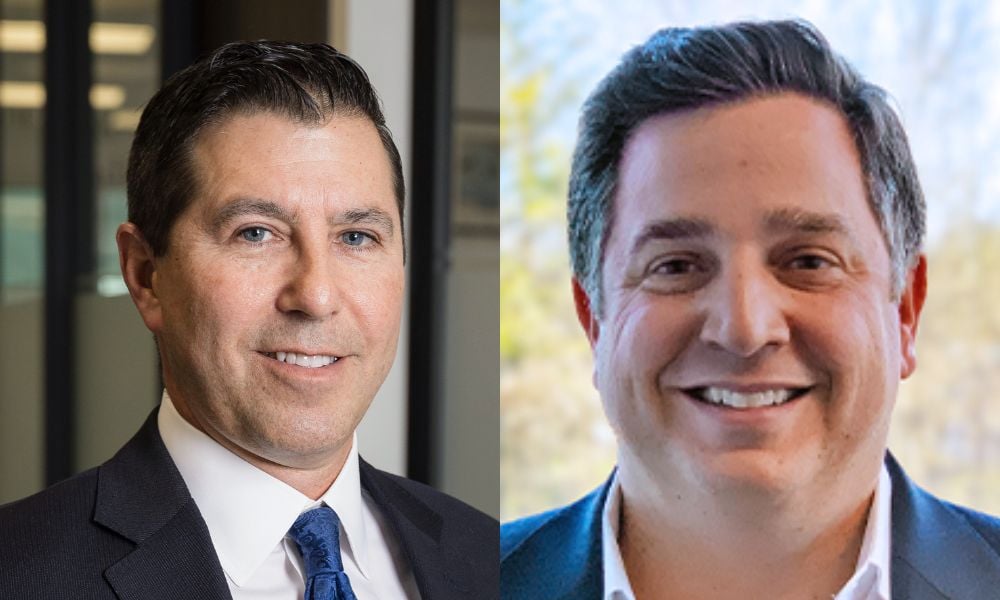

In case you haven’t switched on the news or picked up a newspaper lately, there is a fairly consequential election coming up next month.
No need to thank us for the reminder. But for financial advisors and their clients, the upcoming vote will indeed have consequential results. That’s why wealth managers are intently weighing their portfolio strategies ahead of what is currently a too-close-to-call contest.
Todd Walsh, CEO of Alpha Cubed Investments, for example, predominantly works with high-net-worth clients, who he says are locked in on the election right now. Walsh says he is helping formulate client portfolios with a winner in mind.
“And then the platform is going to have some winners or losers with the wind at their back,” said Walsh. “And that's where we want to be.”
Matthew Liebman, CEO of Amplius Wealth Advisors, on the other hand, says the nation’s $35 trillion debt is going to be a post-election headwind that neither candidate or party is paying attention to right now. In his view, taxes will be rising due to the expiration of the Trump tax cuts no matter which side wins in November.
Still, Liebman is not telling his clients to shy away from stocks. Instead, he is recommending they diversify their holdings after what has been a very, very strong run for a sliver of the market, essentially mega-cap domestic technology stocks.
“We don’t think that necessarily has to reverse, but we feel that owning a multitude of asset classes and sectors is a smoother, better way to go than just betting on what worked recently,” said Liebman.
Also, Liebman takes a contrarian approach in that he openly speaks about politics with his clients – and not just within the parameter of the stock market.
“We have to talk about these things as a country, as a business. It's front of mind. It's the front of every story,” said Liebman. “I have as many Republican clients as Democrat clients, and we have to talk about this clinically, not emotionally.”
Meanwhile, Kevin Flanagan, head of fixed income strategy at WisdomTree Investment Strategy Group, says there is a tendency for market-participants to focus too much on how the election will impact equities, all the while forgetting about the much bigger bond market. They also, in his opinion, forget to factor in the impact of Congressional control.
“You have to have a blue wave or a red wave. Without that, you don't get major legislation passed,” said Flanagan.
Flanagan adds that all the campaign trail talk about Presidential tinkering with the Federal Reserve’s independence will also fade into memory once the election is over.
“I think a lot of that gets kind of blown out of proportion,” said Flanagan. “Can there be headlines? Yes, we’ve seen it before. But I think for the most part, the Fed maintains their independence. Monetary policy is separate and apart from what you see on the fiscal side.”
Finally, Jitania Kandhari, deputy CIO and head of macro and thematic research for emerging markets at Morgan Stanley, points out that both administrations will likely increase the deficit. The difference between the two parties in her opinion is that “the Republicans will fund it with tariffs and the Democrats will fund it with taxes.”
“It's a 50/50 chance in terms of the betting markets, so it's a coin flip in terms of what the outcome can ultimately be,” said Kandhari. “It's very difficult to position one way or the other. Our strategy is risk management, but being completely aware of the different nuances and to act nimbly as the events unfold.”

Chasing productivity is one thing, but when you're cutting corners, missing details, and making mistakes, it's time to take a step back.

It is not clear how many employees will be affected, but none of the private partnership’s 20,000 financial advisors will see their jobs at risk.

The historic summer sitting saw a roughly two-thirds pass rate, with most CFP hopefuls falling in the under-40 age group.

"The greed and deception of this Ponzi scheme has resulted in the same way they have throughout history," said Daniel Brubaker, U.S. Postal Inspection Service inspector in charge.

Elsewhere, an advisor formerly with a Commonwealth affiliate firm is launching her own independent practice with an Osaic OSJ.
Stan Gregor, Chairman & CEO of Summit Financial Holdings, explores how RIAs can meet growing demand for family office-style services among mass affluent clients through tax-first planning, technology, and collaboration—positioning firms for long-term success
Chris Vizzi, Co-Founder & Partner of South Coast Investment Advisors, LLC, shares how 2025 estate tax changes—$13.99M per person—offer more than tax savings. Learn how to pass on purpose, values, and vision to unite generations and give wealth lasting meaning
